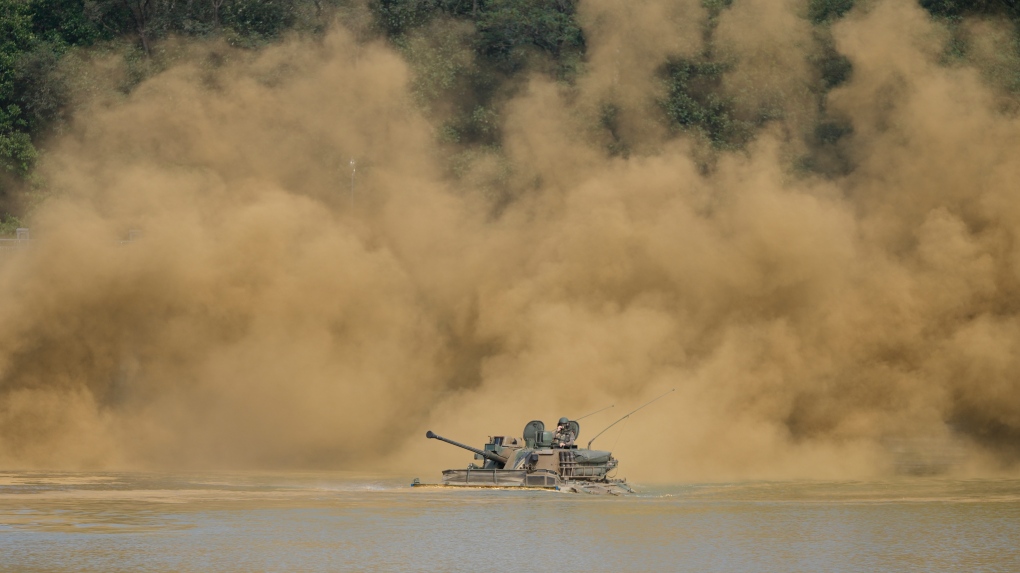
South Koreans want their own nukes. That could roil one of the world's most dangerous regions
CTV
With dozens of nukes in North Korea's burgeoning arsenal, repeated threats to launch them at its enemies, and a stream of tests of powerful missiles designed to pinpoint target a U.S. city with a nuclear strike, a growing number of South Koreans are losing faith in America's vow to back its longtime ally.
To the steady rat-tat-tat of machine guns and exploding bursts of smoke, amphibious tanks slice across a lake not far from the big green mountains that stand along the world's most heavily armed border.
Dozens of South Korean and U.S. combat engineers build a pontoon bridge to ferry tanks and armored vehicles across the water, all within easy range of North Korean artillery.
For seven decades, the allies have staged annual drills like this recent one to deter aggression from North Korea, whose 1950 surprise invasion of South Korea started a war that has technically yet to end.
The alliance with the United States has allowed South Korea to build a powerful democracy, its citizens confident that Washington would protect them if Pyongyang ever acted on its dream of unifying the Korean Peninsula under its own rule.
Until now.
With dozens of nukes in North Korea's burgeoning arsenal, repeated threats to launch them at its enemies, and a stream of tests of powerful missiles designed to pinpoint target a U.S. city with a nuclear strike, a growing number of South Koreans are losing faith in America's vow to back its longtime ally.
The fear is this: That a U.S. president would hesitate to use nuclear weapons to defend the South from a North Korean attack knowing that Pyongyang could kill millions of Americans with atomic retaliation.
